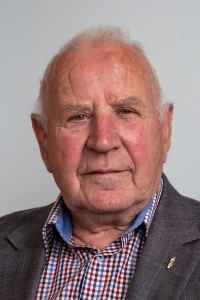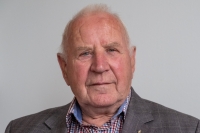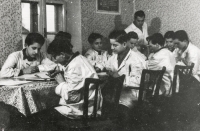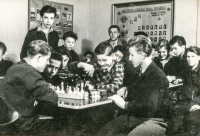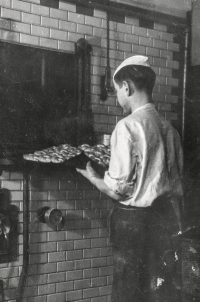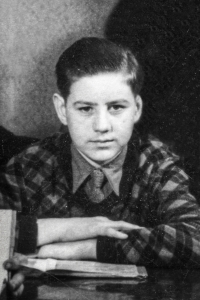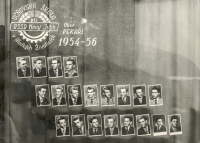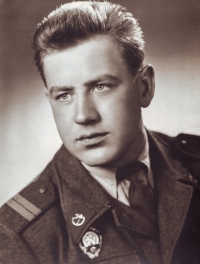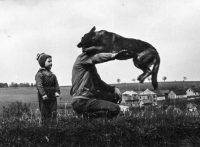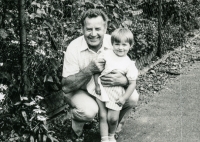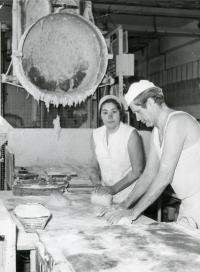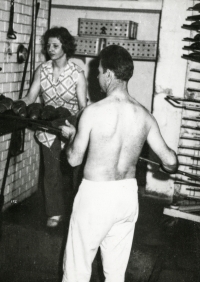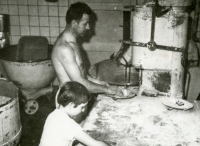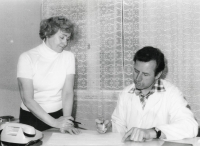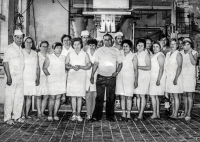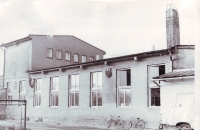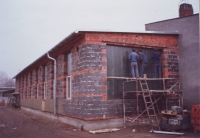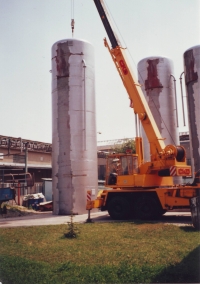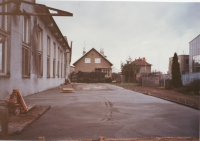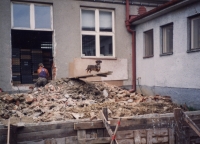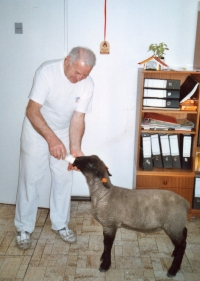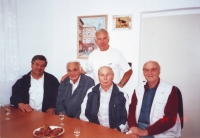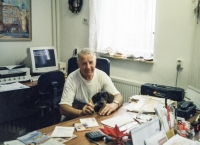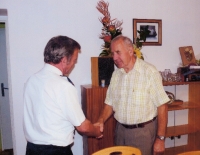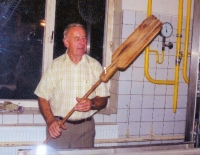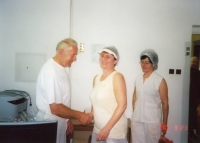Don‘t look! My father shouted at me
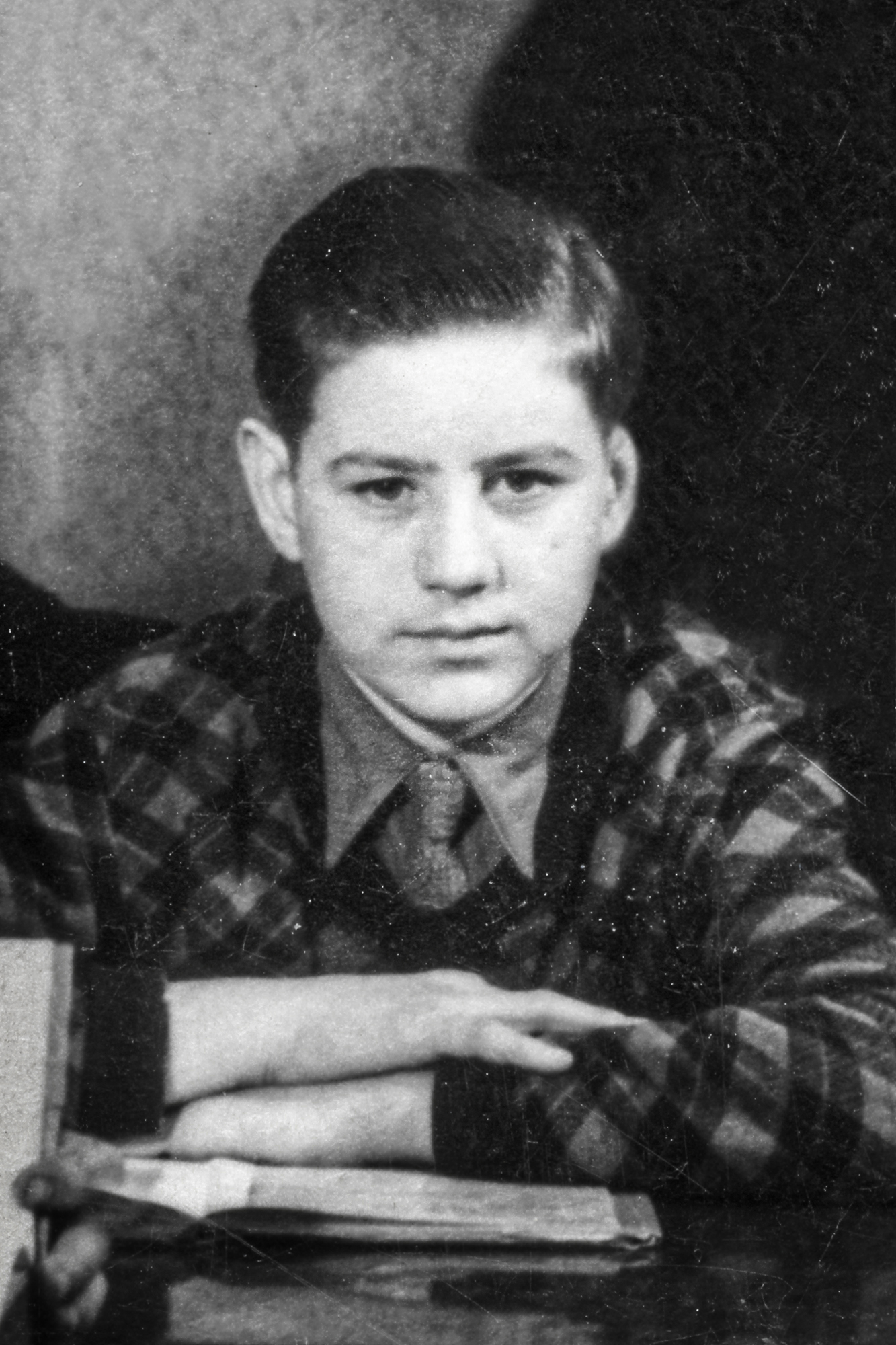
Stáhnout obrázek
Arnošt Obrusník was born on 21 September 1939 in Strahovice in the Opava region as the third of five siblings. His father returned from the war in 1945 without his right arm, which he lost in Belarus. During the biggest battles in the village, they hid in the neighbors‘ basement, as the Soviets had set up a headquarters in their house. But a drunken soldier chased them out of the cellar, pointed a machine gun at them and threatened to shoot them. Another soldier shot his uncle, who was fleeing from the burning cellar. He watched as German soldiers fled into the woods and the Soviets shot at them. The dead soldiers had to be exhumed by local citizens and taken out of the village on wagons. In the 1950s, the family gave their fields and cow to the JZD (Unified Agriculture cooperative). To get bread, the witness went with ration cards to the baker Macošek and wanted to become a baker after his example. At the army in Trebon he had to cook for 3000 soldiers, although he did not train as a cook. In total, he went through thirty-nine bakeries out of fifty-one in the Opava district. In order to be able to hold leading positions, he joined the Communist Party in the first half of the 1980s. He was put in charge of supervising sensitive documents subject to state secrecy at the secretariat of the Communist Party of Czechoslovakia in Opava. After the Velvet Revolution, he became the first entrepreneur in the district. In 2024 he lived in Kozmice.
